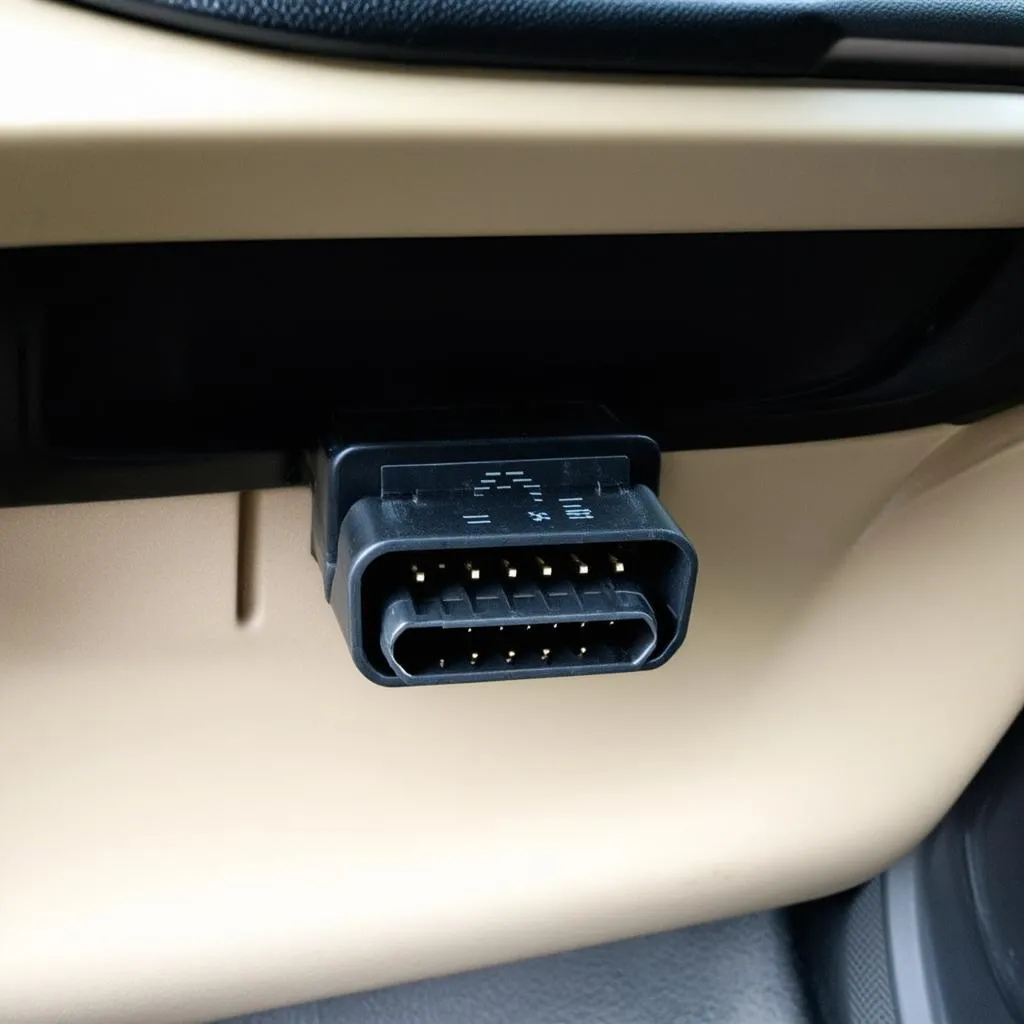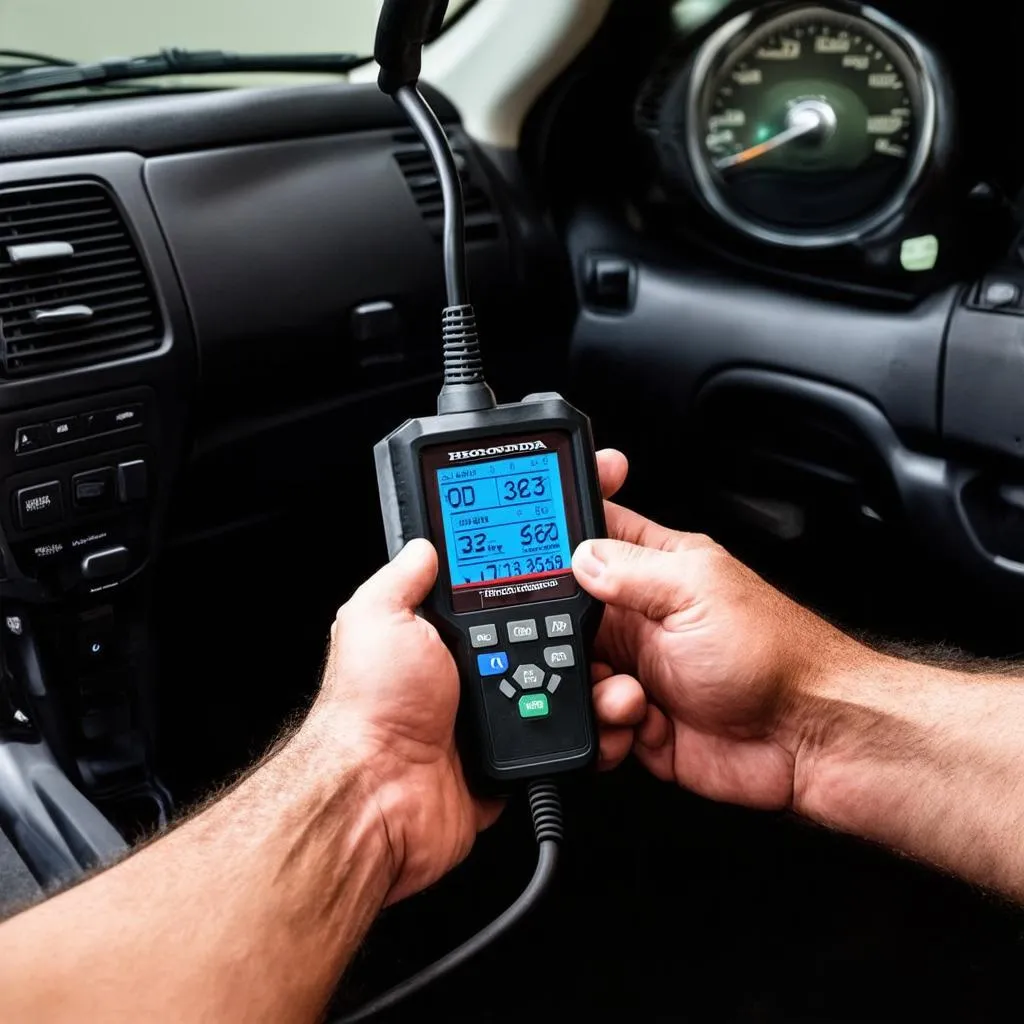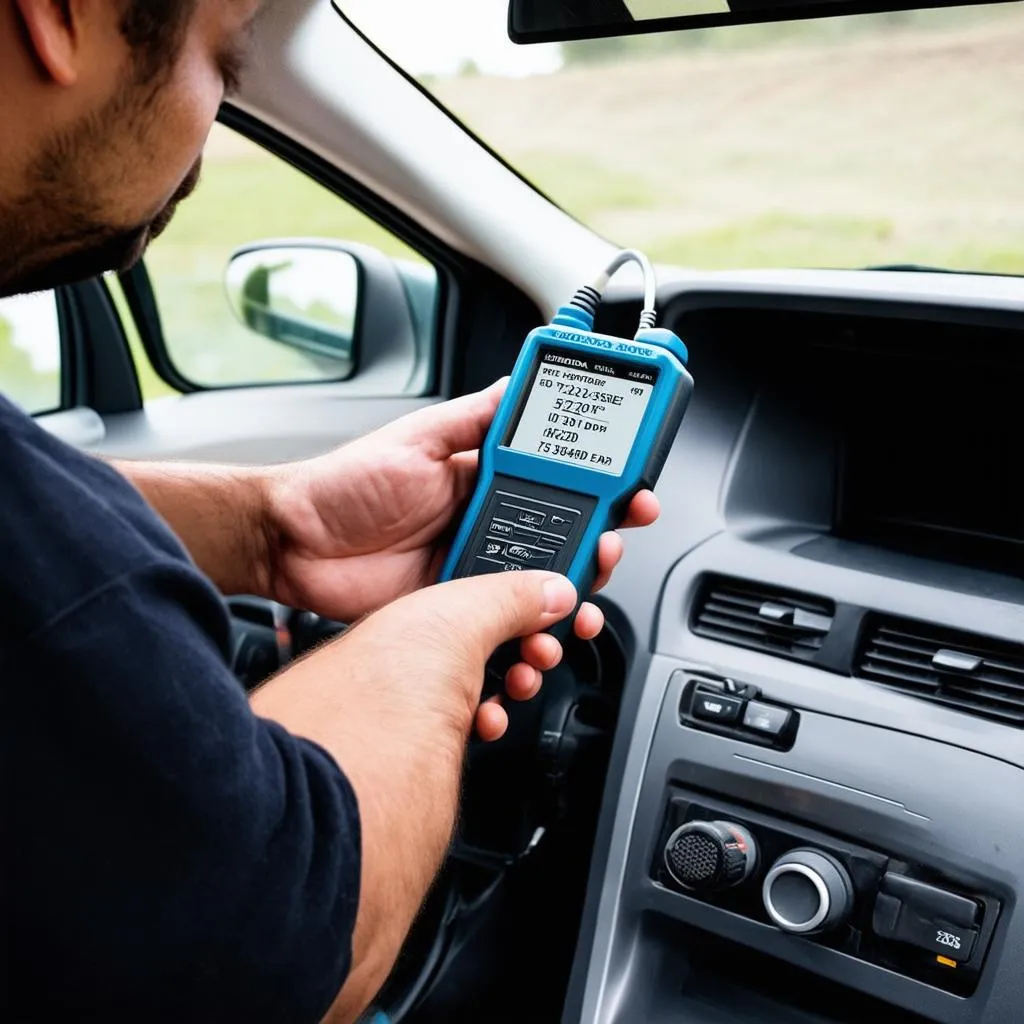“Where’s the OBD port on my 2001 Honda CR-V?” You’re not alone in wondering this! It’s a common question, and the answer can be crucial when trying to diagnose car troubles or work on your vehicle’s electronic systems. Let’s delve into the world of OBD ports and find out exactly where this little connector is hiding on your 2001 Honda CR-V.
Understanding the Importance of the OBD Port
The OBD (On-Board Diagnostics) port is a gateway to your car’s brain, allowing you to access and interpret valuable information about its health and performance. Imagine it as the portal to your car’s secret code, offering insights into everything from engine misfires to sensor malfunctions.
Think of it this way: Just like a doctor uses a stethoscope to listen to your heart, a mechanic uses a diagnostic tool plugged into the OBD port to “listen” to your car’s systems. This information is vital for making accurate diagnoses and ensuring smooth operation.
Where is the OBD Plug Located on a 2001 Honda CR-V?
The OBD port on a 2001 Honda CR-V is typically located underneath the dashboard on the driver’s side, near the steering column. It’s often tucked away in a small recess or compartment, making it a bit of a treasure hunt.
Here’s a step-by-step guide to finding it:
- Start by looking under the dashboard, on the driver’s side.
- Feel around the area near the steering column. There should be a small rectangular opening or compartment.
- Look for a 16-pin connector with a label or logo indicating “OBD” or “DLC”.
The OBD Port and Its Connection to Car Maintenance
The OBD port plays a pivotal role in modern car maintenance and repair. It allows mechanics and car owners to access diagnostic trouble codes (DTCs), which are like error messages generated by the car’s computer. By reading these codes, mechanics can pinpoint the specific issue and address it effectively.
It’s also worth mentioning that the OBD port is used for:
- Reading real-time data: This allows mechanics to monitor engine performance, fuel consumption, and other vital parameters.
- Programming new keys: Some car models use the OBD port for key programming.
- Performing software updates: Many car manufacturers release software updates that improve performance or address known issues. These updates can be installed through the OBD port.
Finding the Right Tool: Dealer Scanners and DIY Options
While you can find the OBD port yourself, you’ll likely need a specialized tool to access the information it holds. This is where dealer scanners come into play. Dealer scanners, also known as “diagnostics tools,” are powerful devices used by professional mechanics to diagnose and repair vehicles. They allow for in-depth analysis and repair options, particularly when dealing with European cars.
For those looking for DIY options, there are plenty of affordable OBD scanners available:
- Basic OBD scanners: These devices can read and clear trouble codes, offering a basic level of diagnostic information.
- Advanced OBD scanners: These scanners provide more comprehensive data, allowing you to view real-time data, perform sensor tests, and even reset the “Check Engine” light.
What If You Can’t Find the OBD Port?
If you’re struggling to locate the OBD port, don’t panic! There are a few things you can try:
- Consult your car’s owner’s manual: The owner’s manual should provide a diagram showing the exact location of the OBD port.
- Search online for a specific model guide: Many online forums and websites have helpful diagrams and guides for locating the OBD port on various car models.
- Ask a mechanic: If you’re still having trouble, don’t hesitate to ask a mechanic for assistance. They’ll be familiar with the location and can help you find it quickly.
Pro Tip: If you’re unsure about your OBD port’s location, it’s best to consult a qualified mechanic for assistance. This will ensure you don’t damage your car or cause any unintended problems.
The OBD Port: A Bridge to Better Car Care
The OBD port is a valuable tool for car owners and mechanics alike, enabling better car care and understanding. By locating this essential connector and using appropriate diagnostic tools, you can gain valuable insights into your car’s health, diagnose issues quickly, and keep your vehicle running smoothly for years to come.
Need Help Finding or Using the OBD Port?
If you have any questions about your 2001 Honda CR-V’s OBD port or need assistance with finding and using it, feel free to reach out to us! Our team of experts is here to help. Contact us via WhatsApp: +84767531508. We offer 24/7 support and can guide you through the process, ensuring you’re confident and informed about your vehicle’s health.
Remember, understanding your car’s OBD port is a key step towards informed and proactive car ownership.
 2001 Honda CR-V OBD Port Location
2001 Honda CR-V OBD Port Location
 OBD Scanner Tool
OBD Scanner Tool
 DIY OBD Scanner
DIY OBD Scanner
